 |
|
|||||
|
|
||||||
|
||||||||||||
|
Robert CoalsonRussian Conservatives Challenge Notion Of 'Universal' Values
As the newly resurgent Russian state has asserted itself increasingly on the international stage, the conservative political elite has sought to flesh out something of an ideology that justifies the rejection of international institutions and Western criticism of political developments in Russia. In doing so, it has revived the 19th-century tsarist mantra of "Orthodoxy, autocracy, and nationality." "I am deeply convinced that the conception of human rights varies from one culture to another, from one society to another, inasmuch as the very concept of the person varies," says political scientist Aleksandr Dugin, who heads the Center for Conservative Studies at Moscow State University and is a leading public proponent of the new Russian conservatism. In Russian culture, Dugin says, a "collective anthropology" has predominated, meaning that the individual can only fully realize his or her potential when functioning as part of the entire society. The Russian conception of human rights does not include "the right to sin," meaning that society, especially in the form of the Russian Orthodox Church and the central state, has an obligation to protect itself as a means of protecting the rights of its citizens. Dugin says the Russian cultural tradition on rights and values has more in common with the Islamic tradition than with Western liberalism. "In the Islamic and Orthodox traditions, almost everything corresponds," he says. "We both reject specific aspects of secular, Western, European, individualistic conception of human rights." In April 2006, the Russian Orthodox Church sponsored the 10th annual Council of Russian People, which adopted a "Declaration of Human Rights and Dignity" that directly challenges the Universal Declaration of Human Rights. Dugin was an important contributing author of that doctrine, as was Metropolitan of Smolensk and Kaliningrad Kirill, who is a leading candidate to succeed the recently deceased Aleksy II as patriarch. "There are values that are no less important than [individual] human rights," the Orthodox declaration asserts. "These are faith, ethics, sacraments, Fatherland." Earlier this year, a group of influential thinkers who label themselves "dynamic conservatives" published a monograph titled "The Russian Doctrine," which in many ways articulates the domestic and political program of the current Russian government. Like other conservative trends, the book emphasizes that "the individual recognizes himself as an organic part of the social environment (neighbors, co-workers), family (relations), and nation (state and major social institutions); there is mutual nourishment, mutual support between the individual and society." Preeminence Of The StateIt remains unclear how influential the new conservatism is inside Putin's ruling elite. Certainly many prominent figures within Putin's inner circle, as well as Putin himself, are sympathetic to the views of the Orthodox Church. Also, chief Kremlin ideologist Vladislav Surkov, who coined the term "sovereign democracy" to describe Russia's political system, has borrowed elements of conservative thinking to argue for restricting the influence of international law, global economic bodies, and Western opinion on Russia's development. In an article published last year, Dugin lauded Surkov's "evolution" from liberalism toward the conservative, state-centered point of view. "For me, the value of statism is absolute," Dugin wrote. "And values like liberalism, democracy, civil society, liberty, the market, and social justice are secondary compared to statism. I am observing Surkov's evolution precisely in this direction." In practical terms, the ascendant conservatism has meant that Russia has challenged the system of international election monitoring developed by the Organization for Security and Cooperation in Europe as hopelessly biased. In July, the Russians argued that election monitors must "show respect for the national organs of power, including the electoral organs" of host countries and defer to host governments "in all other questions touching on the sovereignty of the country." Likewise, the Kremlin has criticized the European Court of Human Rights and has taken steps to make it more difficult for Russian citizens to take complaints to Strasbourg. Last year, then-President Vladimir Putin signed a decree designed to "enhance the protection of Russia's rights" at the court. On the other hand, the values of the Universal Declaration of Human Rights continue to hold some sway in Russia. For one thing, the country's 1993 constitution -- particular the enumeration of the rights of citizens -- was clearly drafted in the spirit of the declaration. Constitutional Court Chairman Valery Zorkin stated this directly in an interview with "Rossiiskaya gazeta" just last month. "According to the constitution," Zorkin said, "the individual, his rights and freedoms, are the highest value." What Is Traditional?Much of the political awkwardness of Putinism over the last eight years has arisen from efforts to superimpose the new conservatism on a more liberal framework that the Kremlin seems unwilling to jettison entirely. Although the Putin government has consistently followed the line of strengthening the state, one occasionally comes across nods to the Universal Declaration of Human Rights, similar to Zorkin's comments. Just this month, the ruling Unified Russia party submitted a draft ethical code of conduct for state officials that says explicitly that officials are not required to obey orders that "are in serious contradiction to the basic human rights laid out in the Constitution of the Russian Federation and the Universal Declaration of Human Rights." Conservatives also have trouble demonstrating that average Russians share their notions of the "national values" of Russian-Orthodox culture. A national poll by the All-Russia Center for the Study of Public Opinion (VTsIOM) this month found that 33 percent of Russians support "the defense of traditional Russian values, national independence, the strengthening of power, and the defense of the interests of Russians," views that VTsIOM researchers summarized as "national conservatism." The study came under sharp criticism for the way the questions were formulated and, in general, VTsIOM has been lambasted for conducting research that confirms the views of its "partner organization," Unified Russia. Sociologist Boris Chernyakhovsky criticized the study. "The authors of the poll consciously ignored the fact that Russian values, like traditional values, come in various types. There is the tradition of serfdom and the tradition of peasant uprisings," he wrote. "There is the tradition of Russian tsarism and the Soviet tradition.... And there is, incidentally, the tradition of Russian liberalism." Other polls, including one released in September by the Liberal Mission Foundation, have found that a majority of respondents believe "measures to strengthen the vertical of power...have led to an excessive concentration of power and the bureaucratization of the whole system of governance." However, Russian conservatives such as Dugin and Metropolitan Kirill insist on the need to respect a culture's historic and moral traditions when forming its laws and state institutions and on the right of each world culture to pursue its own path of development. Otherwise, the potential for clash of cultures always looms, Dugin says. "If one of us -- either Europe or the West as a whole or Russia -- starts trying to force its conception of human rights on the other, there will be problems," Dugin says. "Because from our point of view, our conception of human rights is optimal, even universal, unlike the European one. And Europeans think just the opposite," he continues. "As soon as we begin to seriously accent our pretensions to universalism, a conflict immediately arises." RFE/RL Russian Service correspondent Mikhail Sokolov contributed to this report |
Виды цветного металлопроката Воздушные завесы Топас 5 |
||||||||||||||||||||||||||||||||||||||||||||||||||||||



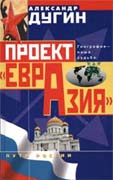
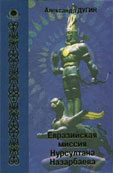
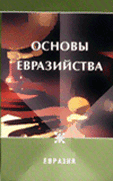










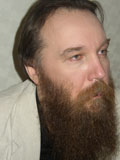







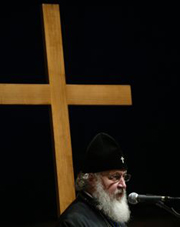 Conservative thinkers in Russia are not celebrating the 60th anniversary of the adoption of the Universal Declaration of Human Rights. Instead, they are denouncing it as aggressive colonialism, yet another attempt to impose "Western" values on other cultures.
Conservative thinkers in Russia are not celebrating the 60th anniversary of the adoption of the Universal Declaration of Human Rights. Instead, they are denouncing it as aggressive colonialism, yet another attempt to impose "Western" values on other cultures.










